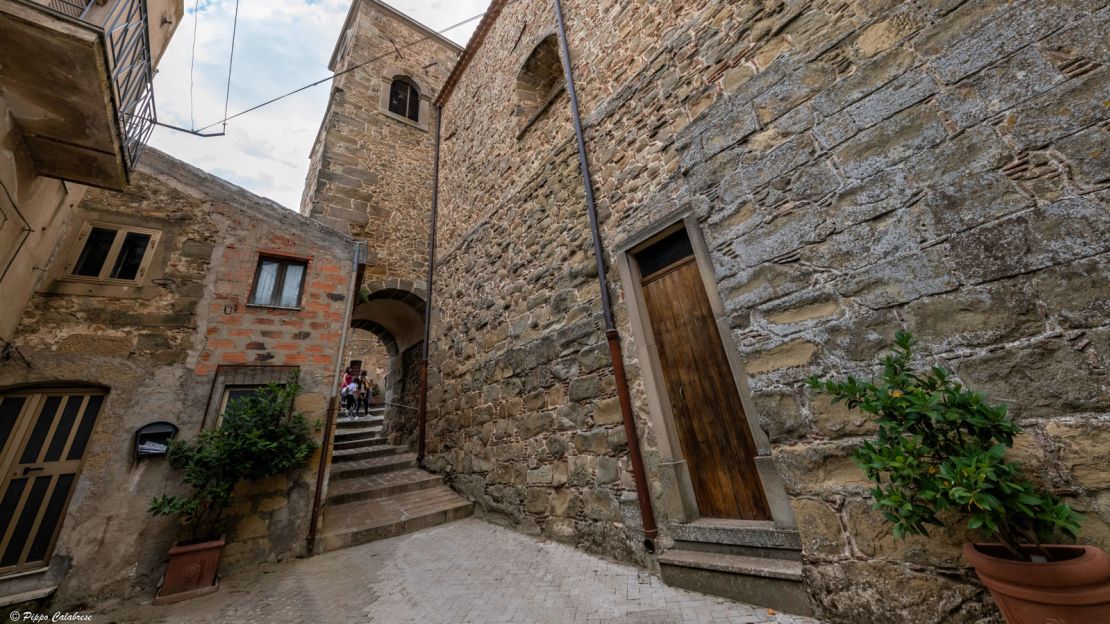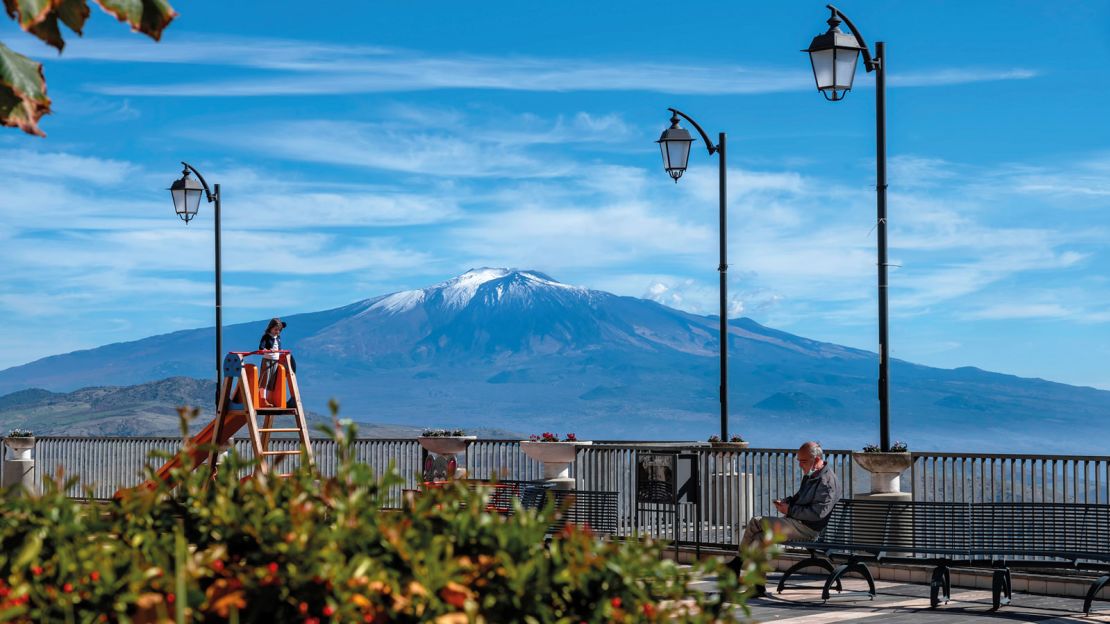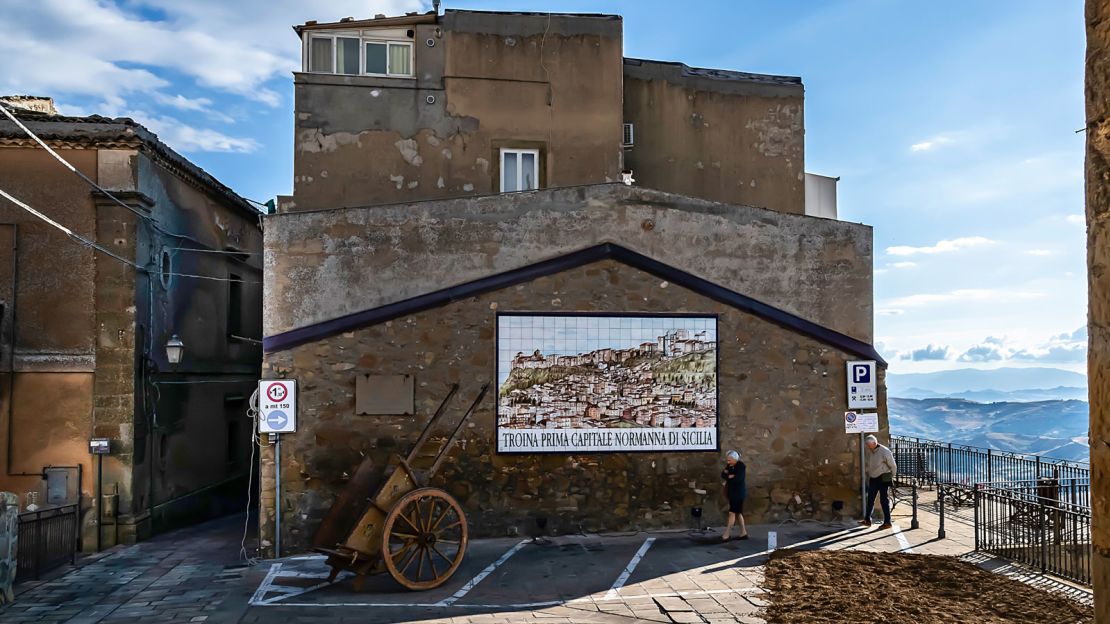If you’ve previously been tempted by the prospect of buying a crumbling house in Italy for one euro, this latest move by a town to lure newcomers might just convince you to take the plunge.
The Sicilian town of Troina is joining the likes of Mussomeli and Zungoli by putting dozens of abandoned homes on the market for less than the cost of an espresso.
In fact, local authorities are so keen to attract new residents to the town’s dwindling ancient district, they’re offering to help with the renovation costs of buyers who agree to take up residency.
Mayor Sebastiano Fabio Venezia says he hopes the scheme, which launched in late November, will bring a new lease of life to the town’s historical center.
The area has been declining over the past few decades due to many locals packing up and moving to more modern houses around Troina, or leaving the town completely.
“I want to save our old district from the grave and recover its lost grandeur, when it was the Norman capital of Sicily,” Venezia tells CNN Travel.
“The ancient urban setting must be restyled in its entirety, and I intend to do so quickly.”
In order to speed up sale procedures, Venezia has set up a multilingual task force of housing and legal experts to assist new buyers throughout the process, as well as an online agency, HouseTroina.
Although the one euro homes aren’t currently available to view on the site, they are due to be added at the end of January.
“We don’t want potential buyers to get lost in bureaucracy or scare them away with tedious paperwork,” Venezia explains.
While international travel is currently limited due to the ongoing pandemic, interested buyers can view the properties available on the site and email a draft restyle project to the team at [email protected].
Rescue mission

According to Venezia, roughly 30 one euro abodes are immediately available, while another 100 homes are likely to go on the market once the former owners have handed them over to the town hall.
The project currently works on a first come, first served basis. However, if demand increases, the mayor’s office will choose between buyers based on the quality of their restyle plans.
Those who opt to buy one of the properties available must agree to the following conditions.
Buyers are expected to pay a deposit guarantee of 5,000 euros, which will be returned to them once the renovation work is complete.
While the final restyle plan can be submitted a year after purchase, the work must begin two years after the buyer acquires the property. Finally, the renovation work has to be completed three years after purchase.
Those who opt for a one euro abode or one of the cheaper upper-level houses within the old center may be granted “restyle bonuses” of up to 15,000 euros, as well as another 10,000 euros for energy efficiency works.
And if you’re willing to settle down and become a permanent resident of Troina, but are less keen on taking on the task of renovating a dilapidated property, town officials are willing to provide you with up to 8,000 euros toward buying a home that does not require upgrading.
“It often happens that when visitors pop up asking for a one euro deal they settle at the end for renovated houses that start at 10,000 euros,” explains Venezia.
Bonuses and benefits

Thanks to the relatively low prices of local real estate, several new residents have paid as little as 5,000 euros for other properties here.
There are many advantages to buying a home in Troina’s ancient district. Not only are new owners entitled to free kindergarten fees for their children as well as a free school bus, they aren’t obligated to pay property and city services taxes for three years,
The area is around 500 meters from the newer, more populated areas of the town and still has a few shops and bars for the few residents that live there, while more stores are due to open soon.
Troina’s new and ancient districts are connected by a maze of narrow cobbled alleys and arched ornate passageways.
Its modern brightly colored houses are a sharp contrast to the older, crumbling dwellings made with brownish stones and rusty iron-wrought balconies and terraces.
Many of the one euro homes feature walled doors and windows that have been shut for many years, with some located below street level.
Dry vegetation creeps out of unhinged doors with peeling paint and broken window frames, while unkempt bushes spring from rooftops.
Although some of the thick arched stone portals and wooden doors are still standing, many of the roof tiles are falling off, while piles of debris and abandoned possessions can still be found inside the forsaken dwellings.
Set at 1,100 meters altitude within the pristine Nebrodi mountains park reserve, Troina is known as the “Balcony of Sicily” for its spectacular panorama and happens to be a member of the elite club of I Borghi Più Belli d’Italia, also known as Italy’s most beautiful small villages and towns.
The town is surrounded by 4,000 hectares of forest with a lake and clear streams ideal for horseback riding and long walks.
Dating back to prehistoric times and built on the ashes of a pagan temple, its name is derived from the union of two old Greek words meaning “ragged” and “rocky.”
Once used as a strategic outpost for ancient Greek, Roman, Byzantine and Arab conquerors, Troina went on to serve as the capital of Sicily’s Norman empire during the Middle Ages, becoming a melting pot of different civilizations.
“We’ve always been welcoming people, while Europe was torn by religious wars here, Christians, Muslims and Hebrews peacefully lived together,” says Venezia.
Today, Troina prides itself on being an eclectic and “virtuous” town that’s readily embraced waste sorting and recycling.
The town recently took part in several urban preservation projects and has also been granted funds from the region and state, which has left officials with the funding required to lure outsiders.
Sicily’s ‘balcony’

While its historical center may be deserted, the rest of Troina is full of activity.
The frequent eruptions of Mount Etna, which see smoke rising out of the pinnacle, offer up thrilling views for the many locals who can be found whiling away the hours on benches.
A rural estate where donkeys are bred, milk is produced and fresh produce is grown can be found in the woods here.
Meanwhile Troina’s main piazza, which is decorated with golden colored stones, rises on the ruins of an ancient Greek fortress.
Only one of the majestic towers of its now-destroyed overhanging castle still stands, and visitors will find an art gallery inside its walls.
Meanwhile a series of trekking routes unwind along old shepherd trails dotted with the ruins of a necropolis and abandoned hamlets.
Hungarian-American war photographer Robert Capa famously captured the rural area of the town on camera when he arrived with the Allied troops in 1943 and many of his shots are still showcased around Troina.
One of Troina’s best-known events is the Festa dei Rami, also known as the branches feast, which is held every year on the second to last Sunday of May.
The ancient ritual sees mainly male devotees of Saint Sylvester go on a pilgrimage through the woods to pick up sacred laurels at the bottom of a ravine revered as a natural sanctuary.
Troina is also renowned for its clear, unpolluted night skies, which have become a draw for stargazers looking for experiential stays.
The town stages classical theater performances during summer alongside picturesque artisan fairs showcasing handmade drums, wrought-iron objects and embroidery items.
Troina has a number of delicious local specialties such as vastedda cu sammucu, a flatbread focaccia stuffed with tuma (fresh cheese) and salami, and sprinkled with sambucol (elderberry).
Piciocia, an ancient peasant dish similar to polenta that’s made with chickpeas, sausage, fennel and wild artichokes, is another local culinary highlight.
For those with a sweet tooth, there’s ‘nfasciatieddi, homemade biscuits made with mulled prickly pear wine and coated with toasted almonds.
Cudduri and pasticciotti, Christmas cakes made with almonds, pistachios, chopped hazelnuts, dried figs and cooked wine, are another top treat.
Prospective buyers should visit online agency HouseTroina for more information.
For more on Italy, watch new CNN Original Series “Stanley Tucci: Searching for Italy” Sundays at 9 p.m. ET/PT.













